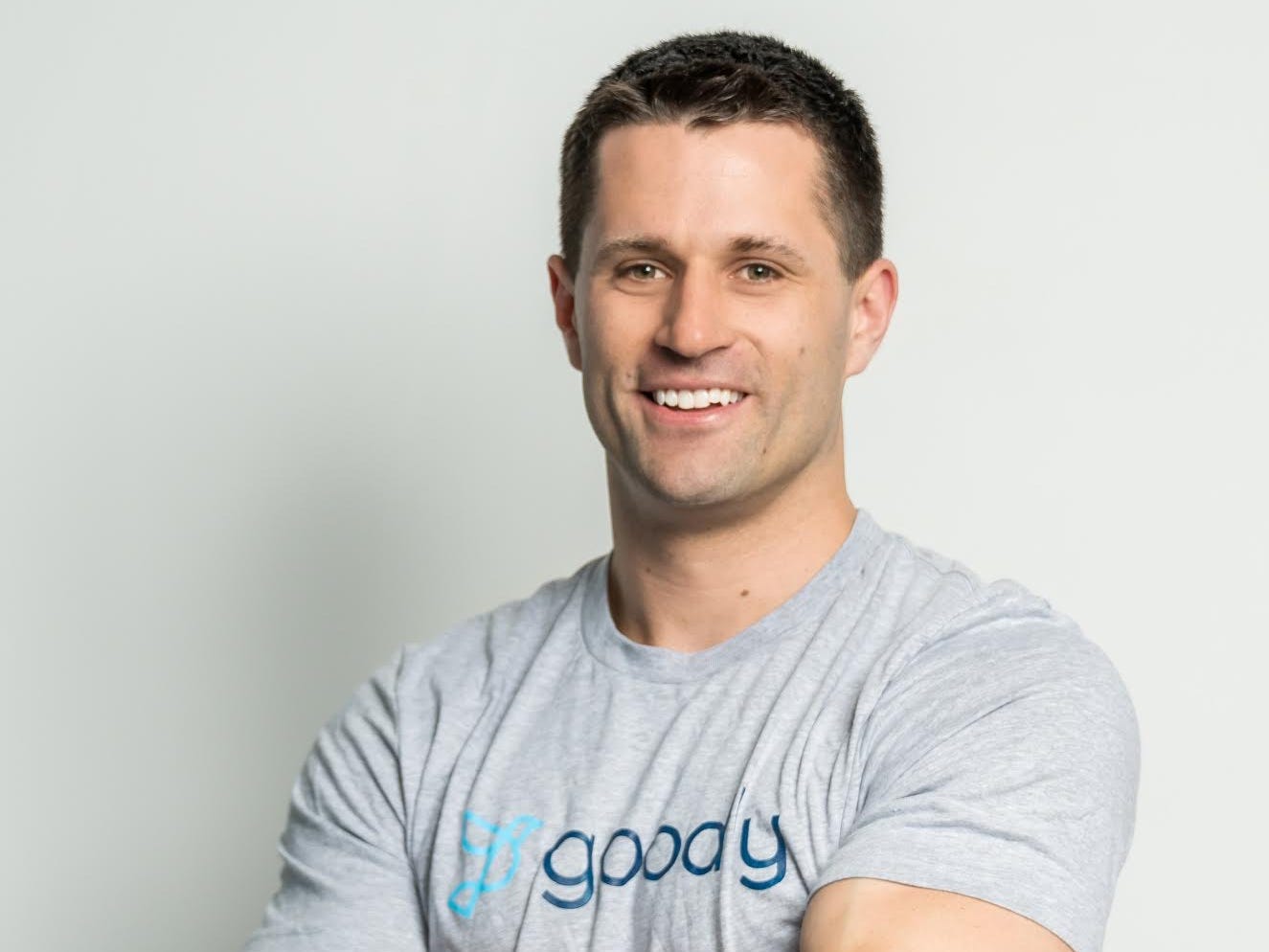
Greg Poulin
- Greg Poulin borrowed $80,000 to complete his education after his father unexpectedly died.
- He was inspired to create Goodly, a startup that helps employers offer a student-loan repayment benefit.
- Poulin told Insider he believes this is a long-term solution to the student-debt crisis.
- See more stories on Insider's business page.
In 2011, Greg Poulin was a 22-year-old undergraduate at Dartmouth when his father unexpectedly died. He had to take out $80,000 in student loans to complete his education, and he's still working to pay off his debt 10 years later, which now stands at $57,345.86, according to documents reviewed by Insider.
After graduating, Poulin became one of the first five employees at Rippling, a San Francisco-based startup which streamlines payroll and benefits administration for companies. After working there for a few years, Poulin decided he could use this expertise to tackle not just his own student debt but everyone's.
He founded his software startup Goodly in 2018 to enable employers to offer student-loan-repayment as an employee benefit. He told Insider the software could help the average employee pay off their student loans about 31% faster than otherwise.
"The case for employer-sponsored student loan repayment programs is simple," Poulin said. "Six out of 10 jobs now require postsecondary education beyond high school; yet, due to the soaring cost of higher education, a college degree remains tantalizingly out of reach for millions of Americans without the help of student loans."
Big companies like Staples, Aetna, and Estee Lauder are also offering this benefit, but Poulin sees a lot more room for growth.
Poulin's work behind the scenes
In December, Poulin worked with Congress to pass the Consolidated Appropriations Act of 2021, which allows employers to make tax-free contributions of up to $5,250 a year to their employees' student debt, without the payments being included in the employees' taxable income. Poulin called it a "watershed moment" for student loan repayment.
Before the tax exemption was enacted, one in 10 employers were offering the benefit, but that figure is now expected to see a 300% increase in 2021, according to the Society of Human Resources Management, increasing to one in three employers now that the benefit is tax-free.
Poulin said it takes employers just 10 minutes to set up Goodly, after which Goodly implements employer contribution plans, enrolls employees, verifies student loans, and facilitates payments on behalf of the employer.
Goodly analyzed 2,000 employers offering student-loan-repayment benefits in the US, and found that the benefit is now offered in companies in all 50 states, with California, New York, and Massachusetts topping the list for states with the most employers offering the benefit.
Working to provide a long-term fix, not a one-off
Aside from employers, lawmakers are also working to help employees repay their student loans. Sen. Ron Wyden of Oregon introduced a bill last week to allow employers to make matching contributions to a 401(k) retirement plan while employees make student loan repayments.
"Right now, generations of Americans are struggling under the crushing burden of student debt," Wyden said in a statement. "They are putting off buying a home, having children and saving for retirement to pay down their student loans. As the cost of higher education continues to skyrocket, so does the debt. Americans need to be able to save for retirement, even while repaying their loans."
Wyden added that while he supports student debt forgiveness, it's important to put "every option on the table" to relieve the burden.
Poulin said he hopes that more companies will make use of Goodly's service down the road to work toward a lasting solution to paying off student debt.
"I think, in a lot of ways, what gets lost in all the noise of student loan forgiveness is, what are we going to do long-term that we can implement for solving the student debt crisis?" Poulin said. "Student-loan forgiveness might be a one-time fix, but even if we have some level of forgiveness this summer, what are we going to do with the cohort of folks entering the workforce with student debt down the road?"